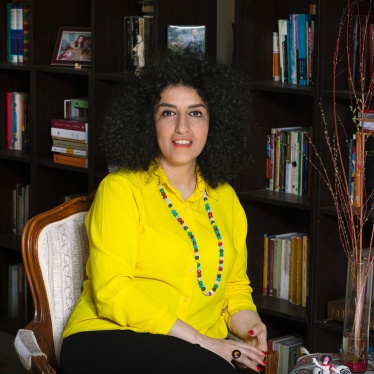(Moscow) – Russia’s State Duma should reject a draft law to ban publishing negative information about the Russian government and military. The government should put a decisive end to its relentless crackdown on free expression.
The draft law, introduced in the lower chamber of parliament on March 25, 2014, would ban “dissemination of inaccurate information diminishing the merits of those who died for the Fatherland and undermining the authority of the Russian Empire, USSR, Russian Federation, and their armed forces.” The draft law is the latest development in an unprecedented attack on free expression in Russia. Earlier in March Russian authorities blocked or interfered with several independent online media outlets and threatened to further restrict media freedom and freedom of information on the Internet.
“This new draft law essentially bans all negative coverage about the Russian government and the Russian armed forces,” said Hugh Williamson, Europe and Central Asia director at Human Rights Watch. “Space for free expression in Russia has been shrinking dramatically since Vladimir Putin’s return to the Kremlin in 2012, especially since the evolution of the crisis in Ukraine.”
Freedom to criticize the government and expose alleged wrongdoings by military and other officials is the cornerstone of any democracy and crucially important to fostering public debate and holding officials accountable.
Oleg Mikheev, the State Duma member who submitted the draft, wrote in his official explanatory note, “The events in Ukraine in late 2013-early 2014 evidenced … an information war” and demonstrated the necessity to protect the younger generation from the danger of “forming a negative opinion of [their] Fatherland.”
The ban would pertain to all “information products,” a sweeping category that would potentially include mass media, websites, books, films, documentaries, news reporting, and even videogames. Mikheev especially emphasized the danger he sees that computer games could pose if the Russian military were presented in a negative light.
He contended that the law would not result in “significant restrictions on mass media and access to information” because it would only relate to dissemination of “inaccurate information.” The draft law provides no definition of the term “inaccurate.”
The draft laws authorizes fines of up to 3,000 rubles (US$81) for private individuals, up to 25,000 rubles ($676) for those acting in an official capacity, and up to 500,000 rubles ($13,500) for officially registered organizations, including nongovernmental organizations, media outlets, and publishers.
The draft law, in imposing serious limitations on free speech that fail to qualify as either necessary or proportionate, also violates Russia’s obligations under both the European Convention on Human Rights (ECHR) and the International Covenant on Civil and Political Rights (ICCPR). Russia is a party to both treaties, which both guarantee freedom of expression.
“In reality, if this law is adopted, any activist or journalist who exposes abuses by the military or criticizes governmental policies could be punished,” Williamson said. “The authorities could simply claim that the information was ‘inaccurate.’ It strikes at the very core of Russia’s vibrant community of rights activists and independent journalists.”






